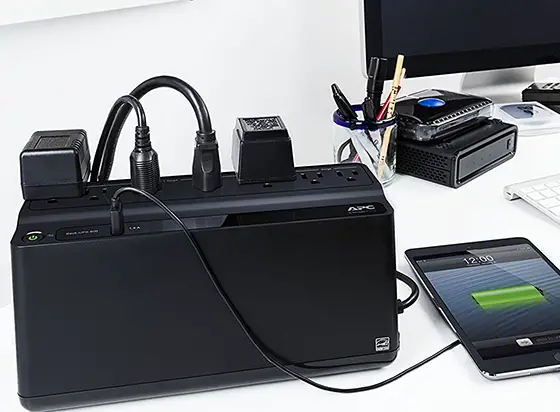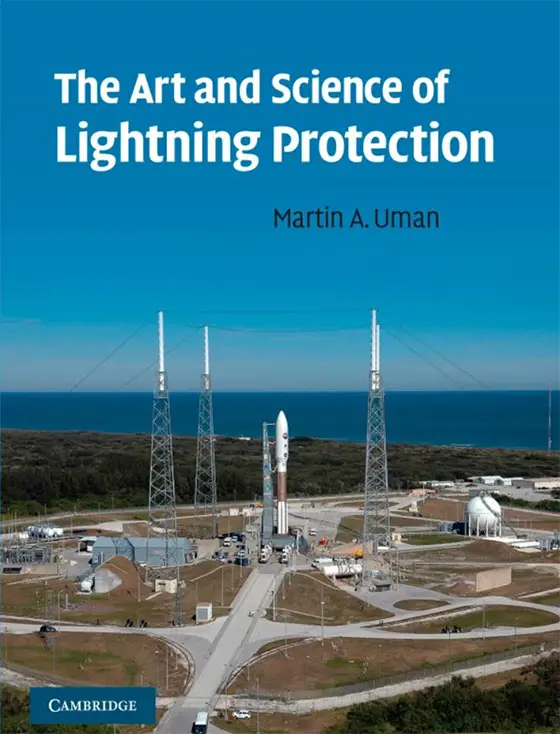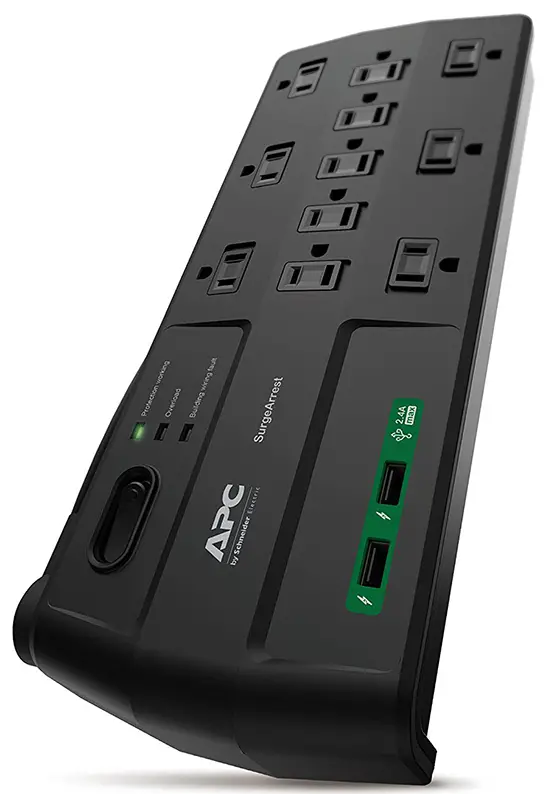How to Lightning Surge Protection

The final line of defense, a battery backup surge protector will keep your electronics safe from damaging power surges. CLICK THE IMAGE to keep your data safe.
Lightning Surge Protection TIPS
- 50,000 F and 30,000 amps - normal lightning bolt
- Small induced voltage surges FRY sensitive circuit components on electronics
- Grounding systems in most homes are inferior
- Unplug all electronic devices for best protection during storms
- CLICK HERE to Get Tim's FREE & FUNNY Newsletter!
DEAR TIM: My neighbor's house was struck by lightning. Fortunately, it did not cause a fire. However, the lightning apparently ruined their computer, phone answering machine, and many other electronic devices.
Why didn't their house catch on fire and what, if anything, can be done to prevent my electronic devices from being destroyed? P. F.
DEAR P. F.: Your neighbor was very lucky.
50,000 F - That's HOT
Lightning strikes generate temperatures close to 50,000 degrees F. The most likely reason a fire did not start was due to the fact that the duration of the strike lasted only a few thousandths of a second.
This type of lightning strike is commonly referred to as a "cold bolt." It is also possible that they have an excellent exterior lightning protection system in place.
30,000 Amps
The average lightning bolt has about 30,000 amps of current. To put that into perspective, your electric double oven may draw a whopping 40 amps when it's on as well as all burners are on high. One robust and tall thunderstorm cell can have 100,000,000 volts of potential.
The voltage potential of a lightning bolt varies because of any number of variables including, but not limited to, diameter of the bolt, humidity, dust and other impurities in the air, etc.
Free & Fast Bids
Small Current Surges FRY Electronics
Electronic devices such as computers, VCR's, televisions, modems, etc. can be ruined or "short circuited" by relatively small current surges. Because lightning can produce enormous voltage surges, special measures should be undertaken in an attempt to protect this equipment.
Lightning can create havoc in your home even if it does not strike the house directly. The lightning can strike a power line that feeds your house. Telephone lines and power lines can experience voltage surges simply from the electromagnetic energy created by a nearby direct strike.
Best Protection
If you want to protect your important electronic devices like:
- computers
- modems
- routers
- expensive flat-screen TVs
- laptops
- any other valuable plugged-in item
then UNPLUG them from the wall before and DURING a violent thunderstorm. I do this in my own home and I know it's saved my equipment and days of being without equipment while I settle with my insurance company and go out shopping for new stuff.
Be SURE TO UNPLUG your cable TV cable from your TV and modem too! Lightning surges travel down these lines too.
Excellent Grounding
The first line of defense is to have an excellent grounding system with respect to all electrical outlets. The reason is simple.
The voltage surge in the power lines will, in many cases, quickly "bleed off" to the grounding system.
Ground wires need to be large and connected to multiple ground rods driven into a wet clay soil.
This is especially true if the grounding system has a very low resistance. This low resistance means that the electricity will travel extremely rapidly through it into the ground or soil surrounding your home.

Learn how you can protect your home from damage caused by lightning. This book provides plenty of diagrams and photographs to easily understand the topic. CLICK THE IMAGE to get the book now.
Soil Type Means Everything
However, different types of soil have varying capabilities to dissipate electricity quickly. Generally, moist sticky clay soils tend to dissipate electricity rapidly.
Sandy, or rocky soils often dissipate this energy more slowly. Soil types can vary greatly in short distances, so you must be sure of the type you have.
If you live in an area with very little or no soil, you have to install specialized grounding systems.
Grounding Rods & Wires Typically Inferior
Most houses have only one grounding rod attached to their electrical system. The ability of your electrical grounding system to quickly dissipate voltage surges increases dramatically if you install numerous grounding rods.
These rods should be spaced at least ten feet from one another in a series. The solid copper wire connecting these rods should be continuous and welded to these rods if at all possible. A mechanical connection, such as a clamp, is the weak link in a grounding system.
Secondary Sacrificial Arresters
A secondary line of defense is to install a secondary lightning arrester inside of your electrical panel. Some of these arresters can withstand 15,000 amp surges. These products capture voltage surges on the "hot" 120 volt power lines feeding your house.

The simplest way to protect your electronics from damage. CLICK THE IMAGE to get a new Surge Protector.
Pro Installation Required
These surges are then directed to the grounding system we just spoke of. These items should not be installed by an amateur, due to the fact that you are working with dangerous house current when installing these devices.
Surge Protectors - Not All Equal
The final line of defense consists of transient voltage surge protection devices. These are the most common surge protectors on the market.
They're available at electric supply houses and stores that sell electronic devices. There are many different varieties of this type of device.
Some even protect telephone lines and electrical outlets at the same time. Remember, all three systems must be employed in order to provide the highest level of protection to your sensitive electronic devices.
CLICK HERE to get FREE & FAST BIDS from local electricians who can protect your home from surges.
Column 021